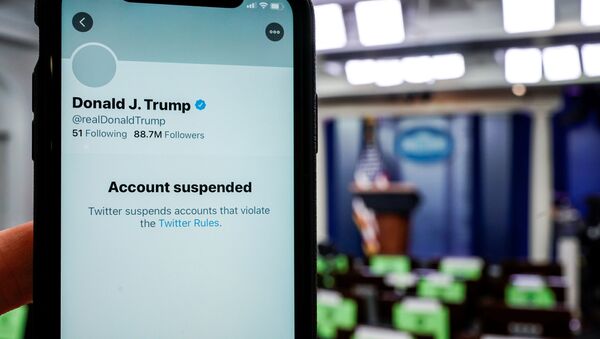Norway's political establishment has been divided by Twitter's move to delete US President Donald Trump's account.
Jonas Gahr Støre, the leader of the Labour Party, Norway's largest and the powerhouse of the left-of-centre "red" bloc, argued that Twitter "chose a difficult stance".
"I understand that Trump's statements are problematic, dangerous, and encourage hate, but there is a very high threshold to block people, so I am sceptical of that", the Labour leader told national broadcaster NRK. "This is a line where freedom of expression is also at stake. If Twitter starts with this sort of thing, it means that they have to go around the world and look at other people completely astray, and shut them out", he summed up.
By contrast, Prime Minister Erna Solberg, the head of the ruling Conservative Party and the centrepiece of the centre-right "blue" bloc, argued that Twitter did the right thing.
"Twitter says that Trump has gone against their content requirements, and we must accept that, as we have asked for strict rules to ensure that hate rhetoric does not spread", she said.
Her opinion was shared by the Socialist Left Party, which is otherwise in opposition. According to its deputy leader, Torgeir Knag Fylkesnes, Twitter made the right decision to ban Trump permanently, because he used it "as an arena to promote conspiracies and incite violence", thus turning it into "a machine for spreading this message".
Jon Wessel-Aas, a lawyer and a specialist in freedom of expression, told NRK he is not surprised that Twitter closed Trump's account for good, underscoring that Twitter is free to do so.
"It may seem a bit controversial for a head of state in a Western democracy to be shut out from a platform that many people use, but he has not behaved like an ordinary head of state", Wessel-Aas said.
According to the lawyer, Twitter doesn't want be used as a tool to ignite a revolt similar to the one that led to the storming of the US Capitol.
"It is allowed to lie. It is within freedom of speech, but Trump has abused the world's most powerful office for pure lies and propaganda, which has led large sections of the population to believe that they are exposed to injustice and a conspiracy from the rest of society", Wessel-Aas stated. He also underscored that the term censorship is usually applied to actions exercised by the authorities, and not a private actor that is enforcing its rules.
Anine Kierulf, an associate professor at the University of Oslo and special adviser to the Norwegian Institute for Human Rights, stressed that it may be problematic for a democracy if expulsion from Twitter leads to certain sections forming their own media, and becoming even more radical. "Then you miss public opinion, which is a prerequisite for democracy", Kierulf told NRK.
According to her, social media platforms are in a dilemma. On the one hand, they should be neutral content providers without responsibility. On the other, they admit they do have a kind of editorial responsibility to some extent, and thus hold some liability for the statements published.
"They take the editorial responsibility halfway. It is impossible to enforce it well enough with the methods they use, and the result is arbitrary. The positive thing about Trump getting banned is that it becomes very clear to us what power these platforms have over the public and how randomly they manage it", Kierulf said. According to her, this will reinforce the impression that the media have a left-wing bias and censor conservative voices and further undermine confidence in them.
The US president had around 88 million followers on Twitter. All 56,571 messages from Trump have been deleted as Twitter permanently closed down Donald Trump's personal account. In response, Donald Trump accused Twitter of conspiring with his political enemies to "silence" him. He also voiced plans to launch a media platform of his own to get his opinions through.


